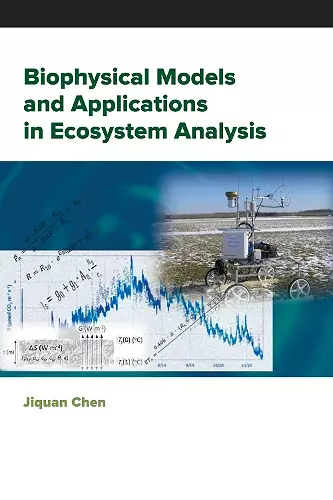Biophysical Models and Applications in Ecosystem Analysis
Format:Paperback
Publisher:Michigan State University Press
Published:15th Mar '21
Currently unavailable, and unfortunately no date known when it will be back

The past five decades have witnessed a rapid growth of computer models for simulating ecosystem functions and dynamics. This has been fueled by the availability of remote sensing data, computation capability, and cross-disciplinary knowledge. These models contain many submodules for simulating different processes and forcing mechanisms, albeit it has become challenging to truly understand the details due to their complexity. Most ecosystem models, fortunately, are rooted in a few core biophysical foundations, such as the widely recognized Farquhar model, Ball-Berry-Leuning and Medlyn family models, Penman-Monteith equation, Priestley-Taylor model, and Michaelis-Menten kinetics. After an introduction of biophysical essentials, four chapters present the core algorithms and their behaviors in modeling ecosystem production, respiration, evapotranspiration, and global warming potentials. Each chapter is composed of a brief introduction of the literature, in which model algorithms, their assumptions, and performances are described in detail. Spreadsheet (or Python codes) templates are included in each chapter for modeling exercises with different input parameters as online materials, which include datasets, parameter estimation, and real-world applications (e.g., calculations of global warming potentials). Users can also apply their own datasets. The materials included in this volume serve as effective tools for users to understand model behaviors and uses with specified conditions and in situ applications.
“This book serves the reader a five-course banquet of models, complete with a host of recipes for predicting an ecosystem’s environment and its carbon uptake, losses, and storage, as well as how evapotranspiration varies under changing climatic conditions. As a special treat, this book offers a taste-test comparison of model predictions with benchmark data recorded in two Michelin-ranked locations in Michigan.” —RICHARD WARING, professor emeritus, Forest Ecosystems and Society, Oregon State University, and joint winner of the 2020 Marcus Wallenberg Prize in Forestry
ISBN: 9781611863932
Dimensions: unknown
Weight: unknown
172 pages